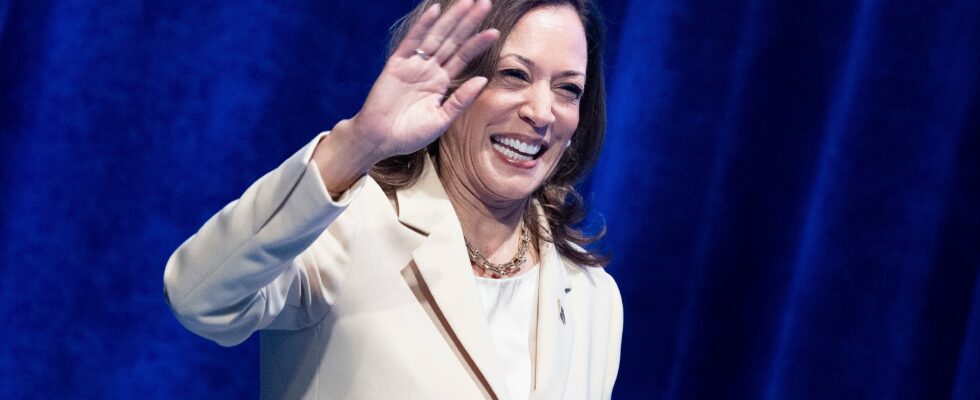The criticism is vitriolic. And it does not come from the Republican camp but from the left wing of the Democrats: James K. Galbraith is an economist, professor at the University of Texas… and son of John Kenneth Galbraith, who advised Kennedy in particular. Five years ago, James Galbraith was the economic advisor to Bernie Sanders, Joe Biden’s opponent in the Democratic primaries. The outgoing president’s economic record? Satisfactory, but only on paper, he explains. Kamala Harris’ economic thinking? Nonexistent. Trump’s economic program? Dangerous for growth, inflation and the purchasing power of Americans, even if JD Vance has some interesting ideas. An exclusive interview.
L’Express: How do you judge Joe Biden’s economic record?
James Kenneth Galbraith. On a strictly macroeconomic level, this assessment is rather good. Whether in terms of the evolution of the unemployment rate or GDP growth, the results are very satisfactory for economists. Except that these performances are very theoretical because this is not what voters feel and experience on a daily basis. Why? Because a very low unemployment rate like we have today does not have the same meaning as it did 20 or 30 years ago. And this point is very important. If unemployment is so low, it is also the result of an optical illusion: many Americans have simply withdrawn from the job market, because of wages that are too low. Hence the labor shortages that we see everywhere, especially in all service professions.
The healthy job market is therefore not accompanied by a sense of economic security. And Biden has failed to reverse this trend. While inflation has certainly slowed since the peak in 2023, food and energy prices have still climbed by nearly 20 to 30% in recent years. However, wages have not kept up. The margin between what I would call a household’s fixed costs (mortgage repayment, food, gasoline, etc.) has shrunk considerably. Hence the disappointment of some Americans, particularly the middle and working class.
However, major infrastructure plans have been launched. As for L’Inflation Reduction Act, it also largely supported the reindustrialization of the country, with visible results, right?
Certainly, a lot of public money has been spent. Reindustrialization is evident in the macroeconomic figures but visible only in certain states. And in those where factory closures had been very numerous in the past, such as Michigan, Wisconsin, Pennsylvania or Nevada, the industrial renaissance is limited. Yet these are the states that will make the swing in the elections next November. Elsewhere, the die is practically cast: we know very well that Texas will vote Republican and California Democrat.
What is Kamala Harris’ economic thinking?
Honestly, I don’t know! I’m not at all sure that she has her own economic thinking. Kamala Harris played a role; she reads a script that was written for her. She hasn’t signed any major papers on this subject, nor given a founding speech. I knew her father well, who was a brilliant economist – Marxist – from Stanford… Today, on the economic front, the Democratic Party is wavering between two visions. That of Biden, very Keynesian, very focused on public investment, fairly indifferent to the issue of debt and ultimately quite protectionist. And the current led by Obama, more open to the world, more globalist, more liberal too. I don’t know which side she’s going to take, even if she’s presented as being more on the left of the party. In reality, I don’t think she’s going to be the one to choose.
In economic matters, what strong measures should the Democrats push?
I see three. The first: a substantial increase in the minimum wage at the federal level to radically change the lives of millions of Americans who work in the service sector and are often forced to have two jobs to live decently given the cost of living. Second, a job guarantee. Third, a radical change in monetary policy. This is a fundamental question and yet one that is rarely discussed. Should we continue to have a hegemonic vision of the dollar or accept moving towards a world where the role of the greenback will be less important?
I am in favor of this second path. But it means that the dollar must fall drastically. This is the only condition for the country to truly reindustrialize. However, the Federal Reserve is trying to keep interest rates high – 5% – while inflation has receded, with the sole aim of encouraging investors to keep the greenback in their portfolios. This ideology is obsolete. I note that the only one who mentioned this subject is JD Vance, Trump’s running mate…
Precisely, you are talking about Donald Trump’s economic program: the former president promises a very strong increase in customs duties. Isn’t that dangerous for the American economy and inflation?
Of course! Because most of household consumption depends on our imports. Those who propose this protectionist shock do not understand what is happening in China. Chinese industry is so efficient that it has the capacity to lower its prices and increase its volumes further to continue exporting and compensate for the increase in customs duties. This rhetoric from economists is totally superficial.
.
